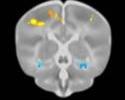Although it's just a mouse model, new research has found that a cancer drug seems capable of reversing memory problems in Alzheimer's disease.
The research, done at the University of Pittsburgh Graduate School of Public Health and published in the journal Science, looked at published outcomes of bexarotene, a drug FDA approved for patients diagnosed with cutaneous T-cell non-Hodgkin's lymphoma.
Drug improves cognitive function
They determined that the drug does improve cognitive function in mice that express the genetic mutations associated with human Alzheimer's disease.
Unfortunately, investigators were unable to determine whether the drug had any effect on the amyloid plaques – toxic protein fragments that cause damage to neurons and are linked to both cognitive problems and death in patients with Alzheimer's.
Still, senior author Rada Koldamova, MD, PhD, associate professor in Pitt Public Health's Department of Environmental and Occupational Health, stated: "We believe these findings make a solid case for continued exploration of bexarotene as a therapeutic treatment for Alzheimer's disease."
How the drug works
Bexarotene, chemically linked to vitamin A, works by triggering Retinoic X Receptors (RXR) in the body, found everywhere, including within both neurons and other brain cells. These receptors, when triggered, bind to cellular DNA and control gene expression.
These researchers were following up on a Case Western Reserve University study from last year that claimed to show bexarotene efficacy in boosting memory in the brains of Alzheimer's model mice as well as in clearing the brains of amyloid plaques.
Said study co-author Iliya Lefterov, MD, PhD, associate professor in Pitt Public Health's Department of Environmental and Occupational Health:
We were able to verify that the mice quickly regained their lost cognitive skills and confirmed the decrease in amyloid beta peptides in the interstitial fluid that surrounds brain cells, [but] we did not find any evidence that the drug cleared the plaques from their brains.
More studies are needed to confirm these findings, but they do offer some hope that certain symptoms of Alzheimer's may be reversible.
Source: MNT








